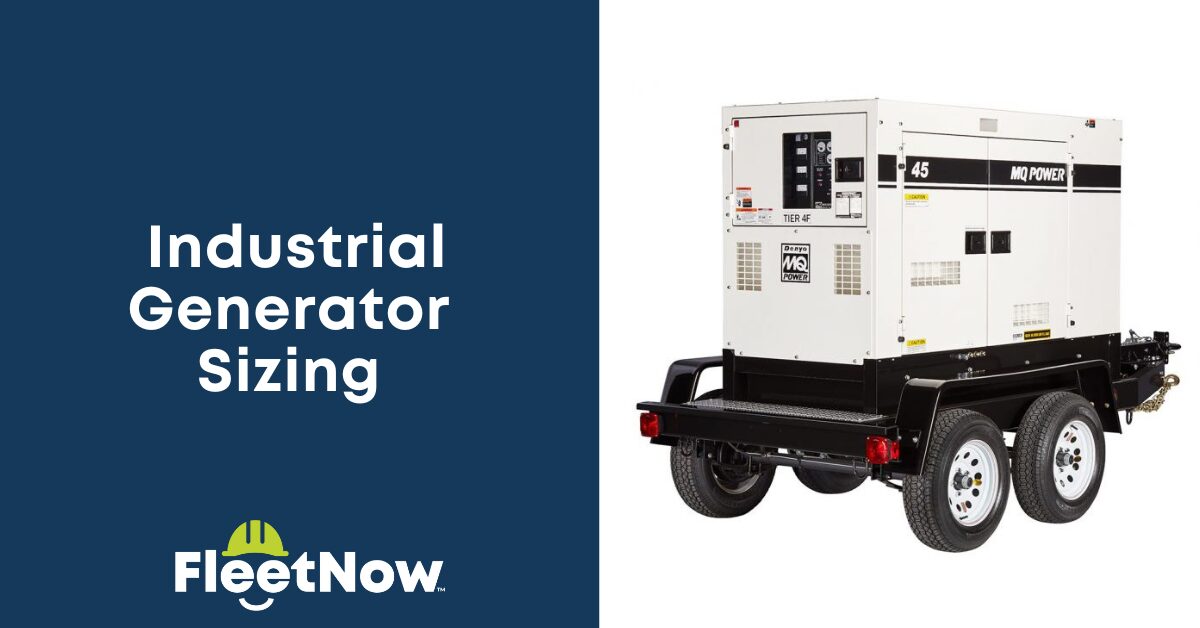Diesel vs. Natural Gas Generators: Which Is Right For You?
When it comes to powering your business or home during an outage, choosing the right generator can make a significant difference. Among the most popular options are diesel and natural gas generators. Each has its own advantages and disadvantages, depending on your needs, budget, and environmental considerations.
1. Fuel Availability & Cost
- Diesel Generators: Diesel fuel is widely available and can be stored on-site, making diesel generators a reliable choice during emergencies when fuel supplies might be disrupted. However, diesel fuel can fluctuate in price and may be more expensive than natural gas, especially in regions with high demand.
- Natural Gas Generators: Natural gas generators are connected to the local utility’s gas lines, meaning you don’t have to worry about storing fuel. As long as the gas supply isn’t interrupted, your generator will keep running. Natural gas is typically more affordable than diesel, but in areas where gas infrastructure is limited, this may not be an option.
2. Performance & Efficiency
- Diesel Generators: Diesel engines are known for their durability and ability to run for extended periods under heavy loads. They’re highly efficient at converting fuel into power, especially for large-scale applications. However, diesel generators tend to be louder and can produce higher emissions compared to natural gas generators.
- Natural Gas Generators: Natural gas generators are quieter and burn cleaner than their diesel counterparts, making them more environmentally friendly. However, they might not perform as well under high-demand situations. For smaller or residential applications, natural gas can be a great option, but for industrial use, diesel may offer better efficiency.
3. Environmental Impact
- Diesel Generators: Diesel fuel emits more carbon dioxide (CO2), nitrogen oxides (NOx), and particulate matter than natural gas. This makes diesel generators a less eco-friendly option, especially for those trying to reduce their carbon footprint. That said, advancements in cleaner diesel technology and after-treatment systems have helped reduce some of these emissions.
- Natural Gas Generators: Natural gas burns cleaner, producing fewer harmful emissions. While it’s still a fossil fuel, it’s considered a better option for the environment than diesel. For businesses and homeowners who prioritize sustainability, natural gas may be the preferred choice.
4. Maintenance Requirements
- Diesel Generators: Diesel generators require regular maintenance, including oil changes, fuel filter replacements, and routine inspections of the engine and exhaust system. The cost of maintenance can add up, but diesel engines are generally long-lasting if properly maintained.
- Natural Gas Generators: Natural gas generators also require maintenance, but less frequently than diesel models. They don’t have the same wear and tear from fuel combustion, meaning the upkeep might be easier. However, natural gas engines may need specific repairs or attention to gas supply components that diesel generators don’t require.
5. Installation & Space Requirements
- Diesel Generators: Diesel generators tend to be bulkier, and you’ll need space to store fuel on-site. Depending on the size of the unit, diesel generators can require a dedicated location with proper ventilation.
- Natural Gas Generators: Since natural gas is delivered via pipelines, there’s no need to allocate extra space for fuel storage. Natural gas generators are often smaller and more compact, making them easier to install in residential or tight commercial spaces.
5. Reliability
- Diesel Generators: Diesel generators have a reputation for being highly reliable, especially in remote areas where natural gas infrastructure isn’t available. As long as you have diesel fuel stored, you can ensure power during outages. However, fuel degradation over time can be an issue if you don’t rotate your fuel stock.
- Natural Gas Generators: The reliability of natural gas generators depends on the local utility grid. If there is a disruption to the gas supply, your generator won’t function. However, for areas with robust gas infrastructure, natural gas generators can be highly reliable.
Which Generator Is Best For You?
When to Choose a Diesel Generator:
- You need a generator for heavy-duty or industrial use.
- You’re in a remote area where natural gas isn’t available.
- You prefer storing fuel on-site for emergencies.
- You don’t mind a bit of extra noise or maintenance in exchange for reliability.
When to Choose a Natural Gas Generator:
- You’re looking for an eco-friendly and quieter option.
- You have access to a natural gas pipeline and want to avoid fuel storage.
- Your application is for residential or light commercial use.
- You prioritize lower emissions and fuel costs.
FAQs About Diesel & Natural Gas Generators
What are the main differences between diesel and natural gas generators?
Diesel generators run on diesel fuel, are highly efficient for heavy loads, and are generally more durable. Natural gas generators run on natural gas from pipelines, are quieter, produce fewer emissions, and are often used in residential or light commercial applications.
Which type of generator is more environmentally friendly?
Natural gas generators are more environmentally friendly because they produce fewer carbon emissions and pollutants compared to diesel generators.
Are diesel generators more expensive than natural gas generators?
Diesel generators usually have higher upfront costs due to their robust engines and larger power output capabilities. However, natural gas generators might require more expensive installation if a natural gas connection is not already available.
What happens to a natural gas generator during a gas supply outage?
If the natural gas supply is interrupted, the generator will stop running. This is one disadvantage of natural gas generators compared to diesel, which can run as long as there is fuel stored on-site.
Which generator is more reliable during emergencies?
Diesel generators are generally considered more reliable in emergencies because they don’t depend on utility infrastructure. As long as you have a supply of diesel fuel, the generator will run.







